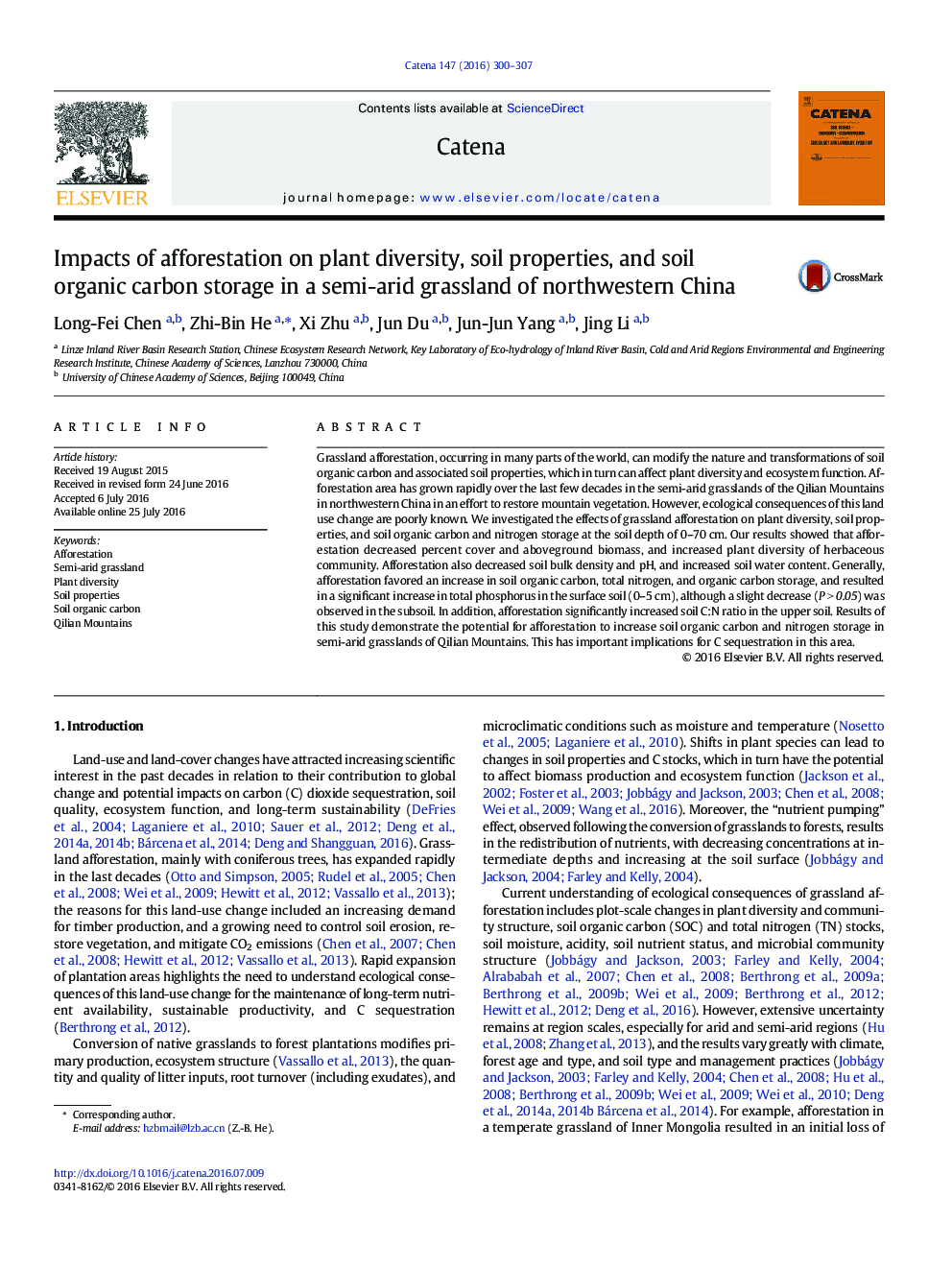| Article ID | Journal | Published Year | Pages | File Type |
|---|---|---|---|---|
| 6407724 | CATENA | 2016 | 8 Pages |
â¢Ecological consequences of afforestation in a semi-arid grassland were studied.â¢Afforestation altered plant composition and diversity of the herbaceous community.â¢Afforestation altered soil properties in both top and subsoil.â¢Afforestation increased soil organic carbon and nitrogen storage.
Grassland afforestation, occurring in many parts of the world, can modify the nature and transformations of soil organic carbon and associated soil properties, which in turn can affect plant diversity and ecosystem function. Afforestation area has grown rapidly over the last few decades in the semi-arid grasslands of the Qilian Mountains in northwestern China in an effort to restore mountain vegetation. However, ecological consequences of this land use change are poorly known. We investigated the effects of grassland afforestation on plant diversity, soil properties, and soil organic carbon and nitrogen storage at the soil depth of 0-70Â cm. Our results showed that afforestation decreased percent cover and aboveground biomass, and increased plant diversity of herbaceous community. Afforestation also decreased soil bulk density and pH, and increased soil water content. Generally, afforestation favored an increase in soil organic carbon, total nitrogen, and organic carbon storage, and resulted in a significant increase in total phosphorus in the surface soil (0-5Â cm), although a slight decrease (PÂ >Â 0.05) was observed in the subsoil. In addition, afforestation significantly increased soil C:N ratio in the upper soil. Results of this study demonstrate the potential for afforestation to increase soil organic carbon and nitrogen storage in semi-arid grasslands of Qilian Mountains. This has important implications for C sequestration in this area.
